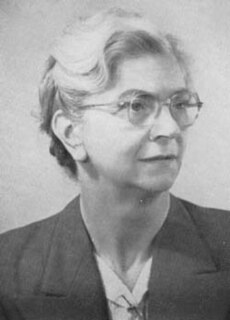Related Research Articles

The guinea pig or domestic guinea pig, also known as the cavy or domestic cavy, is a species of rodent belonging to the genus Cavia in the family Caviidae. Breeders tend to use the word cavy to describe the animal, while in scientific and laboratory contexts, it is far more commonly referred to by the common name guinea pig. Despite their common name, guinea pigs are not native to Guinea, nor are they closely related biologically to pigs, and the origin of the name is still unclear. They originated in the Andes of South America. Studies based on biochemistry and hybridization suggest they are domesticated animals that do not exist naturally in the wild, descendants of a closely related cavy species such as C. tschudii. They were originally domesticated as livestock for a source of meat, and are still consumed in some parts of the world.

Paroxetine, sold under the brand names Paxil and Seroxat among others, is an antidepressant of the selective serotonin reuptake inhibitor (SSRI) class. It is used to treat major depressive disorder, obsessive-compulsive disorder, panic disorder, social anxiety disorder, posttraumatic stress disorder, generalized anxiety disorder and premenstrual dysphoric disorder. It has also been used in the treatment of premature ejaculation and hot flashes due to menopause. It is taken by mouth.

"The Trouble with Tribbles" is the fifteenth episode of the second season of the American science fiction television series Star Trek. Written by David Gerrold and directed by Joseph Pevney, it was first broadcast on December 29, 1967. In this comic episode, the starship Enterprise visits a space station that soon becomes overwhelmed by rapidly-reproducing small furry creatures called "tribbles."

The Gloster Javelin is a twin-engined T-tailed delta-wing subsonic night and all-weather interceptor aircraft that served with Britain's Royal Air Force from the mid-1950s until the late 1960s. The last aircraft design to bear the Gloster name, it was introduced in 1956 after a lengthy development period and received several upgrades during its lifetime to its engines, radar and weapons, which included the De Havilland Firestreak air-to-air missile.

Adam Charles Roberts is a British science fiction and fantasy novelist. In 2018 he was elected Vice-President of the H.G. Wells Society.

Meat & Livestock Australia (M&LA) is an independent company which regulates standards for meat and livestock management in Australian and international markets. Headquartered in North Sydney, Australia; M&LA works closely with the Australian government, and the meat and livestock industries. As a multi-faceted authority, M&LA has numerous roles across the financial, public and research sectors. The M&LA corporate group conducts research and offers marketing services to meat producers, government bodies and market analysts alike. Forums and events are also run by M&LA aim to provide producers with the opportunity to engage with other participants in the supply chain.

Resurrectionists were body snatchers who were commonly employed by anatomists in the United Kingdom during the 18th and 19th centuries to exhume the bodies of the recently dead. Between 1506 and 1752 only a very few cadavers were available each year for anatomical research. The supply was increased when, in an attempt to intensify the deterrent effect of the death penalty, Parliament passed the Murder Act 1752. By allowing judges to substitute the public display of executed criminals with dissection, the new law significantly increased the number of bodies anatomists could legally access. This proved insufficient to meet the needs of the hospitals and teaching centres that opened during the 18th century. Corpses and their component parts became a commodity, but although the practice of disinterment was hated by the general public, bodies were not legally anyone's property. The resurrectionists therefore operated in a legal grey area.

Lilian Edith Hawker was a British mycologist, known for her work on fungal physiology, particularly spore production. She was an expert on British truffles, and also published in the fields of plant physiology and plant pathology. She was also known for her contributions to education in mycology. Most of her career was spent at the botany department of the Imperial College of Science and Technology (1932–45) and the University of Bristol (1945–73), where she held the chair in mycology (1965–73) and was dean of the science faculty (1970–73). She served as president of the British Mycological Society, and was elected an honorary member of that society and of the Mycological Society of America. She published an introduction to fungi and two books on fungal physiology, of which Physiology of Fungi (1950) was among the first to survey the field, and also co-edited two microbiology textbooks.
The Orgburo of the 16th Congress of the All-Union Communist Party (Bolsheviks) was in session from 1930 to 1934.
The Secretariat of the 16th Congress of the All-Union Communist Party (Bolsheviks) was in session from 1930 to 1934.
The Secretariat of the 14th Congress of the All-Union Communist Party (Bolsheviks) was in session from 1925 to 1927.

The Secretariat of the 12th Congress of the Russian Communist Party (Bolsheviks) was in session from 26 April 1923 to 2 June 1924.

The Secretariat of the 11th Congress of the Russian Communist Party (Bolsheviks) was in session from 2 April 1922 to 25 April 1923.

The Secretariat of the 10th Congress of the Russian Communist Party (Bolsheviks) was in session from 16 March 1921 to 3 April 1922.